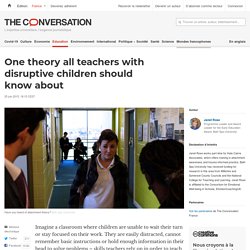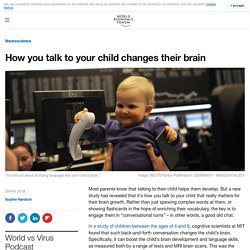

10 Wonderful Benefits of Traveling. There are plenty of things one can gain from exploring different places.

The list includes gaining new friends, new experiences, and new stories. When you start exploring new places, you get a better understanding of the people living there, including their culture, history and background. Studies show that travelling can improve your overall health and enhance your creativity. English language. In order to receive a Chevening Scholarship, all applicants must demonstrate that they have fulfilled Chevening’s English language requirement by 16 July 2020.

We advise all applicants to ensure they have fulfilled the English language requirement as early as possible by either: • Taking an English language test. • Claiming an exemption based on the UKVI exempt categories. If you fail to demonstrate that you have met the required English language level by 16 July 2020 or fail to prove that you qualify for an exemption, your application will not be successful.
Translation. LearnEnglish Kids. Five essential tips for teaching very young children English. Are you daunted by the prospect of teaching English to very young children? Sheona Gilmour, lead educator on our new online course for teachers and parents, offers a few tips. Teaching English to very young children can be challenging, especially if you haven't done any training for the early years classroom. The first time I walked into a kindergarten, I didn’t want to go back the next day. I came from a background of teaching older children, who sat at desks and whose attention I could hold more easily. So the new environment, full of young children with much shorter attention spans, felt overwhelming.
But if you take on board a few essentials, there's a good chance you'll end up cherishing the experience. 1. Kei Tua o te Pae. Observation, Assessment and Planning - Early Years Matters. This ‘Kindness Curriculum’ Is Free And Should Be Used In Every Classroom. Imagine living in a world that valued kindness enough to teach it along with academics. Educators would teach kids to manage their emotions in addition to standard curriculum such as math and science. Sounds pretty amazing, doesn’t it? Well, the Center for Healthy Minds at the University of Wisconsin-Madison has created a free “kindness curriculum” for kids, designed to do just that. 21 Of The Best Early Years Books For International Friendship Day. We know that skills like empathy aren’t fully developed until later in a child’s life, which is why there are so many stories on friendship and how to treat people aimed at Early Years.
International Friendship Day, then, is a great opportunity to share some of these amazing books with your children. It does, however, fall on Sunday 30 July. So celebrating on the day itself is going to be difficult, doubly so for Reception classes who are on summer holidays. The Key to Effective Classroom Management. It’s a daunting but all-too-common sight for many teachers: A classroom full of rowdy students who are unable to focus on the lesson. Classroom management techniques may get things back on track, but valuable time has already been lost. Many experienced teachers know that making meaningful connections with students is one of the most effective ways to prevent disruptions in the first place, and a new study set out to assess this approach. In classrooms where teachers used a series of techniques centered around establishing, maintaining, and restoring relationships, academic engagement increased by 33 percent and disruptive behavior decreased by 75 percent—making the time students spent in the classroom more worthwhile and productive.
“Strong teacher-student relationships have long been considered a foundational aspect of a positive school experience,” explains Clayton Cook, the lead author of the study and a professor at the University of Minnesota. Relationship reflection form. A 19-Year Study Reveals Kindergarten Students With These 2 Skills Are Twice as Likely to Obtain a College Degree (and They Have Nothing to Do With Reading)
One theory all teachers with disruptive children should know about. Imagine a classroom where children are unable to wait their turn or stay focused on their work.

They are easily distracted, cannot remember basic instructions or hold enough information in their head to solve problems – skills teachers rely on in order to teach successfully. These behavioural issues are all examples of problems that can arise from attachment issues – based on the relationship between children and their main caregiver. Attachment theory is now one of the world’s most well-researched theories about human development. Don't Expect Toddlers To Behave Consistently — They Literally Can't.
One day, when my oldest daughter was not quite 2, she wouldn’t sit still to let me change her diaper. Squirrelly and writhing, she made a game out of staying half naked. She wasn’t fussing about it or anything — in fact, she was giggling maniacally. The problem was that we were running late. Nothing I did seemed to faze her. Public Media for Northern CA. Public Media for Northern CA.
Positive Learning Environment - Primary. Key Person & Attachment - Early Years Matters. The Key Person. How Are Happiness and Learning Connected? As teachers, we also know that when students' affective filters or defenses are sky high, fight or flight responses will be modus operandi. A room full of defensive behaviors (withdrawn, angry) is a sad, unproductive place to teach and learn. Now let's flip it and take a look at how much more we are able to learn when we are in harmony with the people and things in any given educational environment. Being in harmony means feeling safe, feeling valued and a necessary part a group, and in this case, a learning community.
Whole Child Development Is Undervalued. The question is how to make such an approach both systemic and sustainable. Whole Person Socio-emotional, physical, creative, and cognitive capacities are deeply intertwined and equally important in ensuring a child's wellbeing, learning, and growth. (That shouldn't be a surprise to anyone studying or supporting children's learning.) Nobel laureate James Heckman, a professor of economics at the University of Chicago, has shown that the non-cognitive skills emerging in early childhood are among the strongest predictors of adult outcomes. And Paul Tough, author of How Children Succeed, has continued to emphasize the crucial role that soft skills play in character formation and building on persistence, curiosity, and even grit -- the "passion and perseverance for very long-term goals," according to psychologist Angela Lee Duckworth.
The most impactful way of supporting such skills is associated with helping children feel in control of their learning process. Whole Communities Whole Societies. The Art of Control. Executive function — our ability to remember and use what we know, defeat our unproductive impulses, and switch gears and adjust to new demands — is increasingly understood as a key element not just of learning but of lifelong success. Researchers at the Center on the Developing Child at Harvard University describe executive function as an air traffic control system for the mind — helping us manage streams of information, revise plans, stay organized, filter out distractions, cope with stress, and make healthy decisions.
Children learn these skills first from their parents, through reliable routines, meaningful and responsive interactions, and play that focuses attention and stirs the beginnings of self-control. But when home is not stable, or in situations of neglect or abuse, executive function skills may be impaired, or may not develop at all, limiting a child’s success in elementary school and later life.
How to help your child learn English with YouTube videos. Tracey Chapelton, education consultant and materials writer, has some advice for parents of young English learners, whose home language might not be English. To learn a language we need a lot of exposure to it. YouTube is beneficial if you are not a fluent English speaker, and want a more fluent model of English for your child.
Helped along by the visuals of their favourite cartoon, children can watch their favourite characters involved in adventures, while absorbing the language. Repetition is also important for language learning. It helps us remember important words and expressions. The more they watch, the more they will understand, eventually using the language themselves. Practical tips. By Opal Dunn, educational consultant and author Introduction Young children learn English differently from most adults.

Most have an innate ability to pick up English while taking part in activities, by making sense of what they are doing and picking up the adult’s language that accompanies the activity. You can find out more in the British Council booklet ‘How young children learn English as another language’, also available on the parents pages of the LearnEnglish Kids website. Planned English sessions. Ten ways to support your child’s English-learning at home. Sound Words: Examples of Onomatopoeia. Serve and Return. The Brain-Changing Power of Conversation. The Science. MIT Brain Study: Back-And-Forth Talk Key To Developing Kids' Verbal Skills. How you talk to your child changes their brain.
Most parents know that talking to their child helps them develop.

Moodle. Carol Dweck: The power of believing that you can improve. How can parents and teachers best educate young children? Listening Skills for Staff. A longitudinal investigation of the role of quantity and quality of child-directed speech in vocabulary development. One Person–One Language and Bilingual Children. "I Said I Want the Red Bowl!" Responding to…
Does my toddler have a short attention span because she won’t sit still for a story? A: It is perfectly normal for toddlers to not sit still very long—period.

Most don’t like to stay in one place for long now that they can explore in so many new ways—by running, jumping, and climbing. Schema and Fairies - Kathy Brodie Early Years Training. Surprisingly Simple Techniques for Challenging Behaviour - Kathy Brodie Early Years Training. Teaching large classes. What to consider when teaching English in large classes. Schemas in Children’s Play. 9 Things You Need to Know About Play (and Preventing Challenging Behavior!) — Challenging Behavior. Deconstructing Role Play – Provide the Resources, Step Back and Watch Children’s Learning Flourish.
Symbolic play and language development. The cognitive benefits of play: Effects on the learning brain. Low-cost play ideas: video. Primary school shake-up to focus on ‘play-led’ learning. Safari Jul 8, 2019 at 12:35 PM.
Dr david whitebread the importance of play. Patricia Kuhl: The linguistic genius of babies. How young children learn English through play. Importance of play for babies & children.